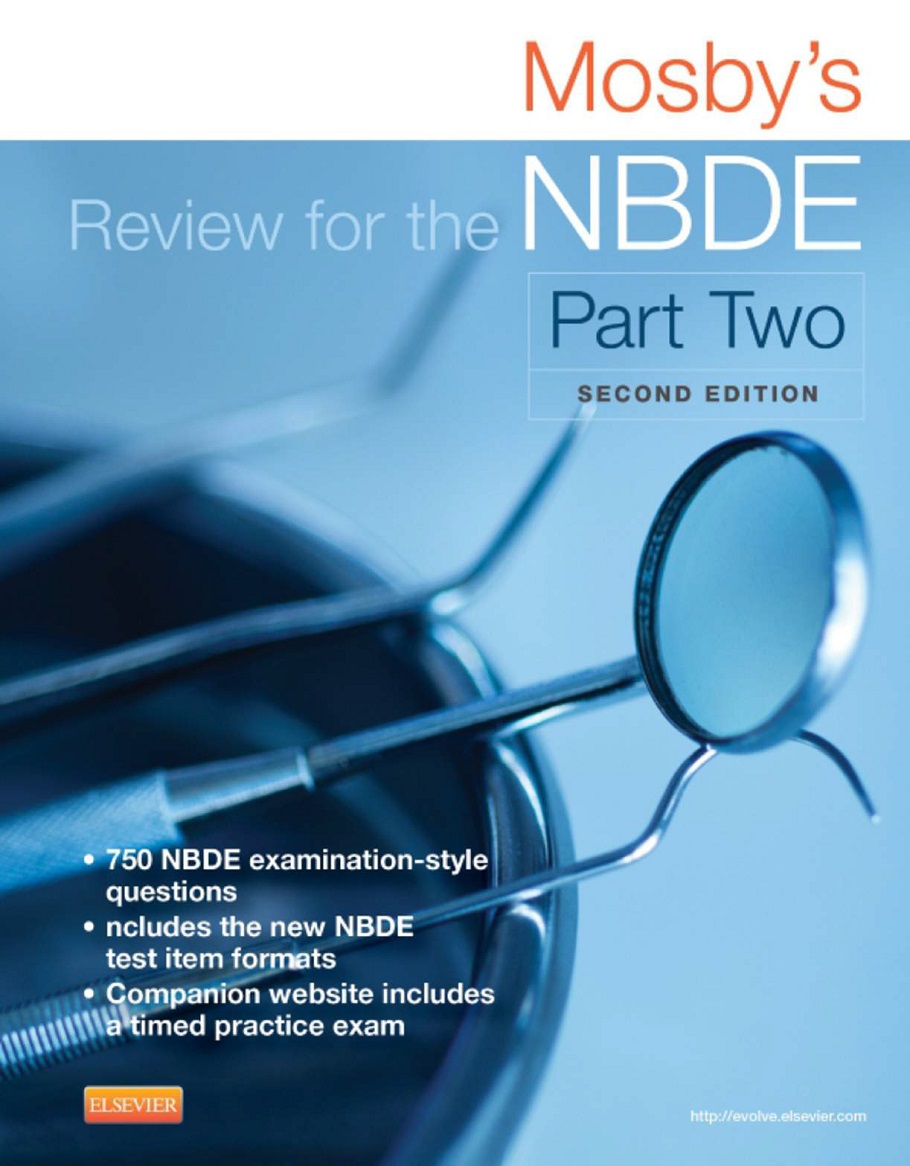15-09-2021
Nbde Part 2
This site requires JavaScript. To fully use this site, please enable it in your browser.

50 Available Questions
Recommended Calculus Exam Practice Material:
Exam Description:

Nbde Part 2 Study Materials
Calculus is a part of modern mathematics education. A course in calculus is a gateway to other, more advanced courses in mathematics devoted to the study of functions and limits, broadly called mathematical analysis. Calculus has historically been called 'the calculus of infinitesimals', or 'infinitesimal calculus'. The word 'calculus' comes from Latin (calculus) and refers to a small stone used for counting. More generally, calculus (plural calculi) refers to any method or system of calculation guided by the symbolic manipulation of expressions. Some examples of other well-known calculi are propositional calculus, calculus of variations, lambda calculus, and process calculus.- The purpose of the NBDE Part I and Part II, and Dental Hygiene examinations is to assist state boards in determining qualifications of dentists/dental hygienists who seek licensure to practice dentistry/dental hygiene. These examinations assess the ability to understand important information from basic biomedical and dental/dental hygiene.
- NBDE Part II General Information. Click the blue box and check back daily for new information. Important updates for all testing candidates regarding COVID-19. In anticipation of potential increase in restrictions related to the COVID-19 pandemic, all testing candidates planning to test during the winter months of 2021 should submit their.
Nbde Part 2 Books
Taking the TOEFL test is a very important part of your journey to studying in an English-speaking country or program. Here's a basic overview to help you learn more about the test.
The basics of the TOEFL test:
The TOEFL test measures your ability to use and understand the English language as it's read, written, heard and spoken in the university classroom. As the most accepted English-language test in the world, more than 8,500 universities, agencies, and other institutions in more than 130 countries accept the TOEFL test as part of their admissions criteria, including nearly every college and university in Australia and the UK.
The test, often referred to as the TOEFL iBT test, is administered at more than 4,500 test sites around the world. A paper-based version of the test is available in areas where TOEFL iBT testing is not possible.
In order for the TOEFL iBT to measure how well you read, listen, speak and write in English, and how well you use these skills together, you'll be asked to integrate these skills for the test. For example, you may read a passage or listen to a lecture, and then write or speak about what you learned.
The computer-based TOEFL test has four sections.
Listening -- Measures ability to understand English as it is spoken in North America.
Structure -- Measures ability to recognize language that is appropriate for standard written English.
Reading -- Measures ability to read and understand short passages similar in topic and style to those that students are likely to encounter in North American universities and colleges.
Writing -- Measures ability to write in English on an assigned topic. In this section, you will have an opportunity to demonstrate your ability to write in English. This includes the ability to generate and organize ideas, to support those ideas with examples or evidence, and to compose in standard written English in response to an assigned topic.
The basics of the TOEFL test:
The TOEFL test measures your ability to use and understand the English language as it's read, written, heard and spoken in the university classroom. As the most accepted English-language test in the world, more than 8,500 universities, agencies, and other institutions in more than 130 countries accept the TOEFL test as part of their admissions criteria, including nearly every college and university in Australia and the UK.
The test, often referred to as the TOEFL iBT test, is administered at more than 4,500 test sites around the world. A paper-based version of the test is available in areas where TOEFL iBT testing is not possible.
In order for the TOEFL iBT to measure how well you read, listen, speak and write in English, and how well you use these skills together, you'll be asked to integrate these skills for the test. For example, you may read a passage or listen to a lecture, and then write or speak about what you learned.
The computer-based TOEFL test has four sections.
Listening -- Measures ability to understand English as it is spoken in North America.
Structure -- Measures ability to recognize language that is appropriate for standard written English.
Reading -- Measures ability to read and understand short passages similar in topic and style to those that students are likely to encounter in North American universities and colleges.
Writing -- Measures ability to write in English on an assigned topic. In this section, you will have an opportunity to demonstrate your ability to write in English. This includes the ability to generate and organize ideas, to support those ideas with examples or evidence, and to compose in standard written English in response to an assigned topic.
Nbde Part 2 Study Material
1) Dental Decks part 2/ Kaplan NBDE part 2/ Dentin NBDE 2/ Mosby's review for NBDE 2 / Dental Boards Mastery app - You can use just one of these books or review multiple books. We recommend just using one of these books as your main source as using multiple may just confuse your basic concepts of different topics. Part 2: Preparation. This course describes the most common medical emergencies occurring in the dental environment and describes the steps necessary to prevent their occurrence. Part 3: Basic Management. This course reviews the basic management protocol for all medical emergencies occurring in the dental office environment –P-C-A-B-D.